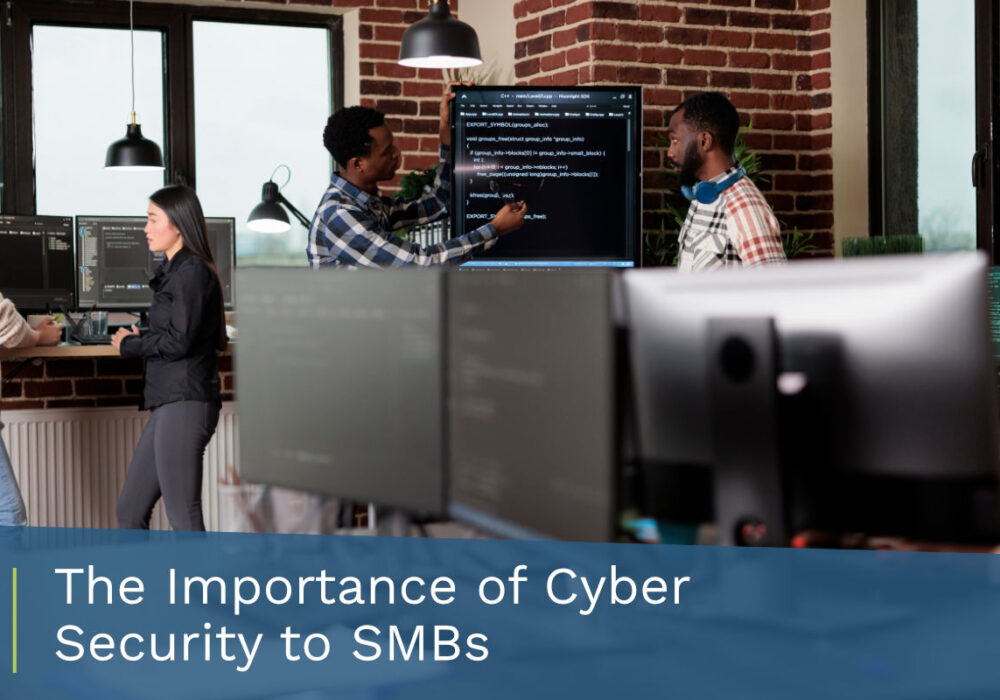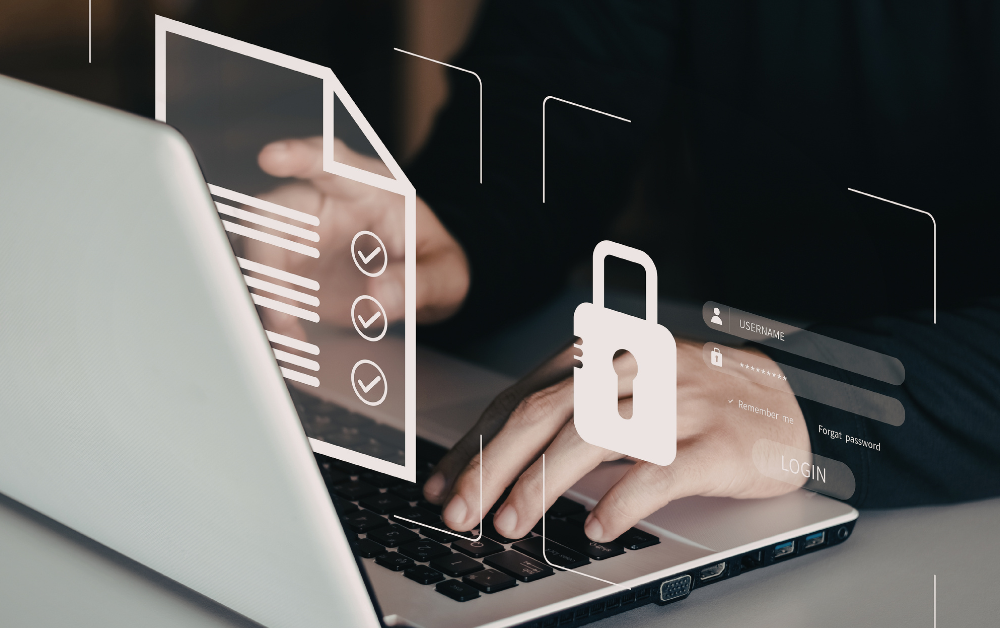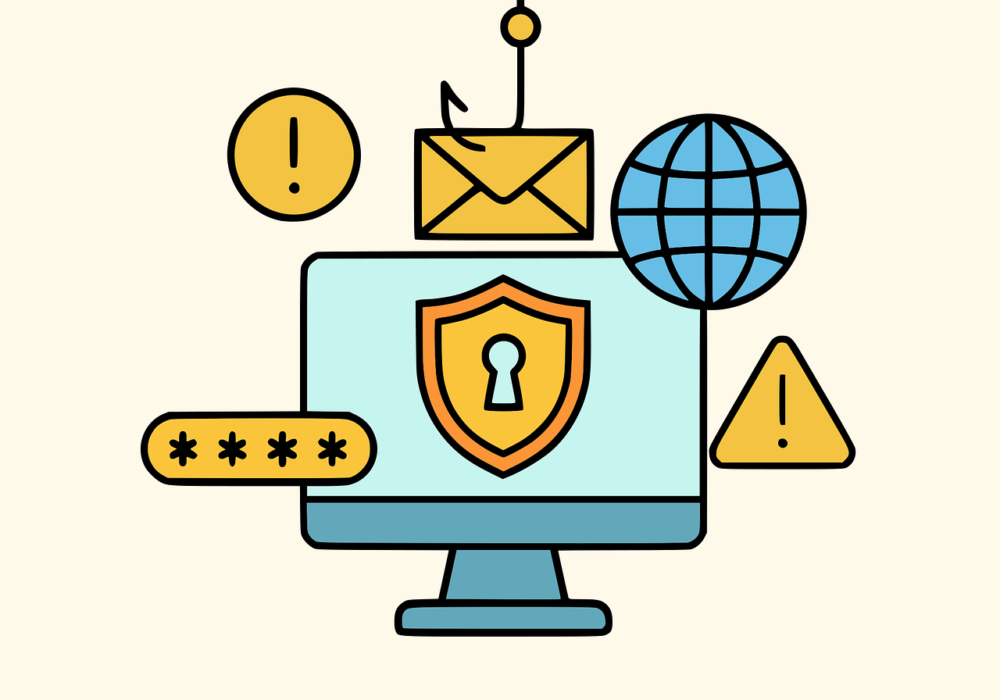In today’s world cyber security should take top spot in your list of business concerns – if it doesn’t then you need to start prioritising it immediately. The modern day abilities of tech – the unlimited internet connectivity in this case – have made it essential that you and your team have at minimum a beginner’s level of prowess with tech – or at least a limited understanding of the potential risks to your system and the various actions you can take to limit those risks. It is argued that your cyber security should now take priority over even the physical security of your organisation, simply because the consequences of a successful cyber attack could be more damaging for a business than a physical one.
The criminal community has seen an opportunity presented by the internet connected devices we all have in our workplaces – it allows a level of anonymity that simply isn’t achievable from a physical attack (breaking into a business physically makes a lot more noise than a Phishing attack does, for example). It is usually through indirect means that a smaller business becomes the victim of an attack, when they are either very unlucky to become collateral damage off the back of a cyber attack aimed at a much larger business or they could be joining the thousands of people and businesses every year that fall foul of a publicly launched attack.
You can become a victim regardless of the number of internet connected devices you have in your workplace. The main reason for this is through a lack of knowledge about cyber attacks or the potentially disastrous consequences of one being successful. We have all been there – upon getting a new Phone, we don’t open the box and spend an hour familiarising ourselves with it to be sure we use it securely, but instead go straight on it to start downloading different apps and visiting various sites.
At the end of the workday someone checks the doors and windows before leaving the office, right? And that process has become automatic, becoming almost a reflex for most. That same attitude should be taken in the protection of your systems, because it should be a normal part of your workday – of course we don’t mean, like the doors and windows, to check every day, but the premise remains.
Cyber criminals don’t discriminate when picking their targets. This means everyone must have good standards of cyber security – and this need can cause apprehension, because some have literally no knowledge of the tools they need to implement to give them a chance of being cyber secure, the cost of what is perceived as a mammoth task, or what they are even defending themselves against. How can you adequately defend your systems if you don’t know what you are defending them against?
The Methods of Cyber Attack
Malware
Malware is designed specifically to attack the functions of an application or the computer system itself. The most common form of Malware – and the type you are most likely to be a victim of – is email attachment Malware attacks known as (Phishing) attacks – more on this shortly.
Ransomware
Ransomware is one of the most common forms of Malware, which works by locking and encrypting your data. The cyber criminals will demand a ransom under the promise that they will safely return your access. They then – to force your hand – cleverly introduce a sense of urgency or some sort of time element into your actions to be sure that the payment is paid when demanded, and all is done under the threat of deletion of your files.
With this being said, of course, many just pay – for most this is an anxiety-inducing experience, they want it over as fast and as painlessly as possible, so can you blame people for just paying? Of course you can’t, but let me present you with another question; would you trust a criminal that breaks into your building physically if you were to come toe to toe with them? No, so why do you when they are in cyber space? Paying will, in fact, have the opposite to your desired effect as you are just advertising the fact that you are willing and able to pay them on demand.
Phishing
A Phishing attack is when a cyber criminal takes a false identity in a fake/fraudulent email in order to gain access to confidential information.
Phishing Emails carry malicious links which enable the cyber criminal’s attack. The cyber criminal will pose as a trusted source to the recipient (a bank, for example). Similarly to Ransomware attacks, they bring a sense of time sensitivity in the content of their message; by doing this they are attempting to force the recipient to make a decision quickly and with little forethought, because when we are rushed we act impulsively. The recipient would then click the link facilitating the attack, thereby proving the rouse was believed.
Now take a look at our following article and discover what steps you need to follow to defend your system against this wide array of cyber threats.
Value from your tools
BCNS make business easier and more cost-effective by guaranteeing that you and your team are always connected to each other and your clients. We can also guarantee that your team are using the latest version of every application to ensure that your systems are secure and you are getting the best possible benefits from your tech. Our team of experts will assist you throughout the transition and beyond to be sure you achieve exactly what you desire. At the same time we can reduce your expenses and improve your security as well as performance! Contact us now and find out how we can help you with your business communications and move into a more productive future.




